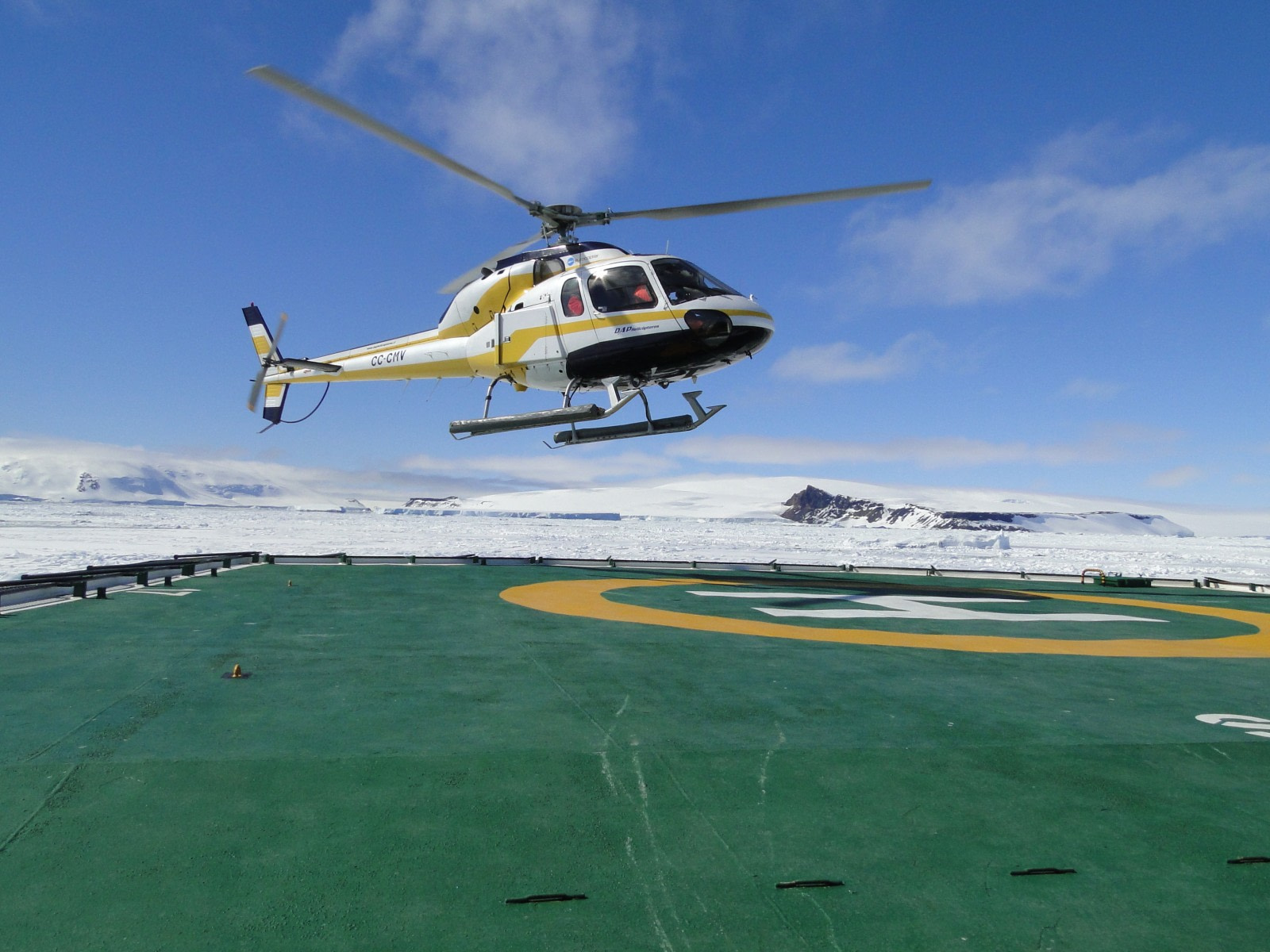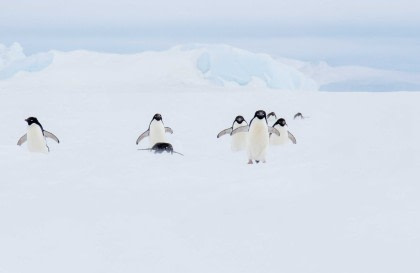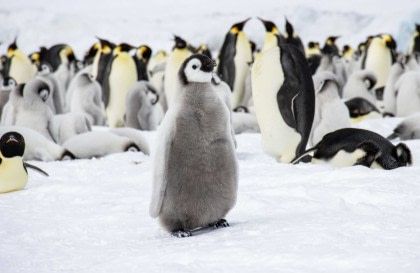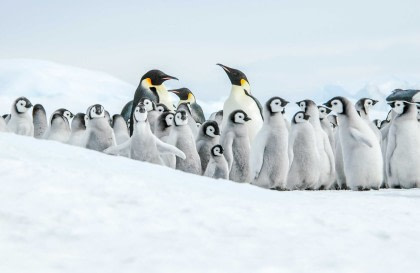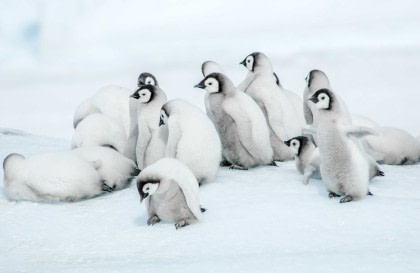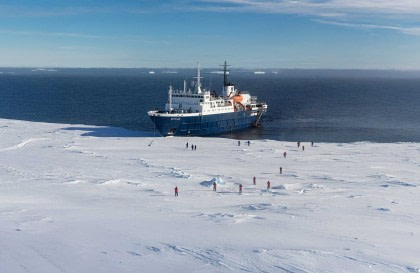A helicopter flight over Antarctica
Dutch journalist Gemma Venhuizen embarked on the m/v Ortelius during the Weddell Sea cruise ‘In search of the emperor penguins – including helicopters’. Flying over the Antarctic Peninsula was a dream coming true.
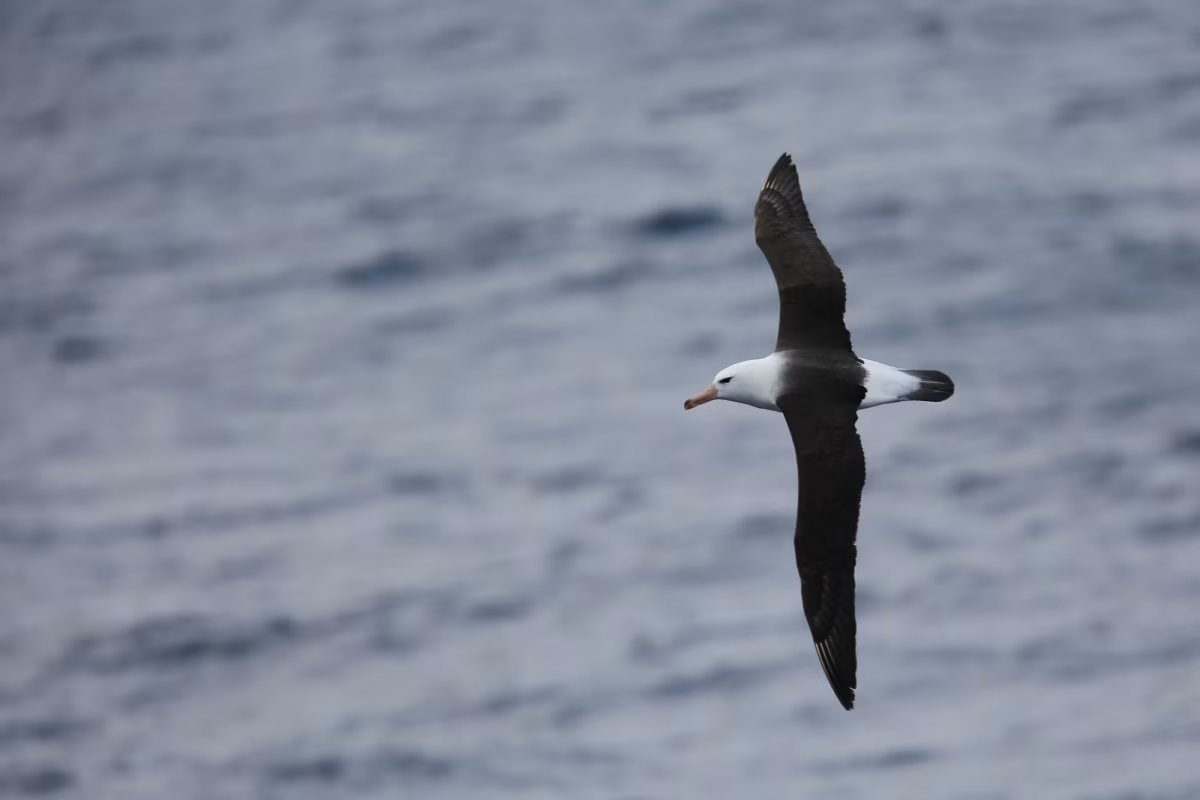
When I was a little girl, I wanted to be a seabird. My parents and I lived near the coast, and I loved to go to the beach and watch the gulls soaring through the sky. Oh, how wonderful would it be to be able to fly!
Back home, I tried to mix my own magic potions, including all the ingredients from my parent’s fridge. A little bit of orange juice, combined with some milk, Coca Cola, sandwich spread and yoghurt surely would help me to be able to fly?
And indeed, after taking a sip, I jumped off the couch and for a few fantastic seconds (before I landed on the carpet) it felt like I could fly.
Before I went to sleep, my mother read me a bed time story: a chapter of Jonathan Livingston Seagull, which was my favourite book. Sometimes I cried myself to sleep, realising I would never ever be able to fly like a bird.
El fin del mundo
Flash forward 25 years. It is the Antarctic Summer of 2016/2017, and I’m standing on the dock of Ushuaia, Argentina. The city is nicknamed ‘el fin del mundo’: the end of the world. In a few hours, the MV Ortelius will leave the shore, towards the Antarctic Peninsula. And I will be on board! What’s more: a Chilean helicopter crew will be on board as well. On this special trip, we will be able to experience the Antarctic not only from the ocean and the land, but also from the sky! Two helicopters will make this special journey even more unforgettable.
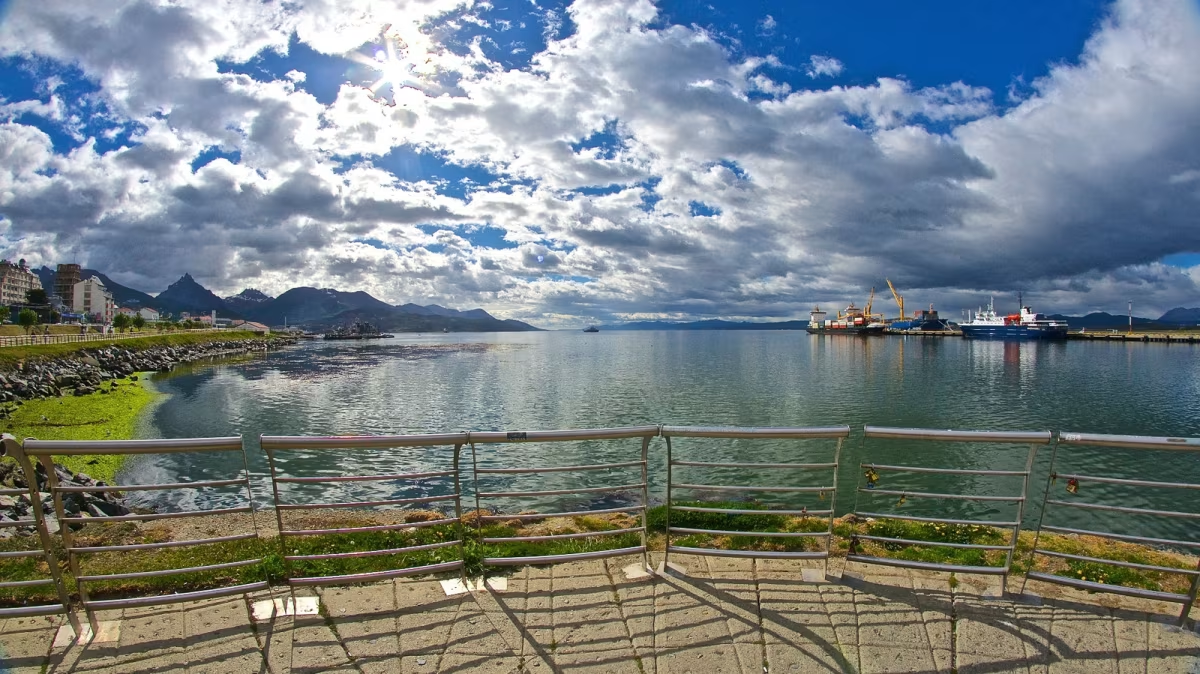
The helicopters are not on board yet, however – we will pick them (and their pilots) up in Puerto Williams, Chile. While we leave the Ushuaian port towards the real ‘fin del mundo’, through the Beagle Channel, a few southern giant petrels soar around the Ortelius to bid us their farewells.
Superhero movie
It turns out to be quite windy in Puerto Williams. We have to wait a few hours before the storm subdues, and the helicopters can fly toward the ship. To see them approach is awe-inspiring. The noise is breathtaking, I cover my hands with my ears, and it is quite chilly on deck. But I don’t want to miss a single second – I feel I’m in some kind of superhero movie when I see the pilots climbing out of their cockpits. We await them with applause.
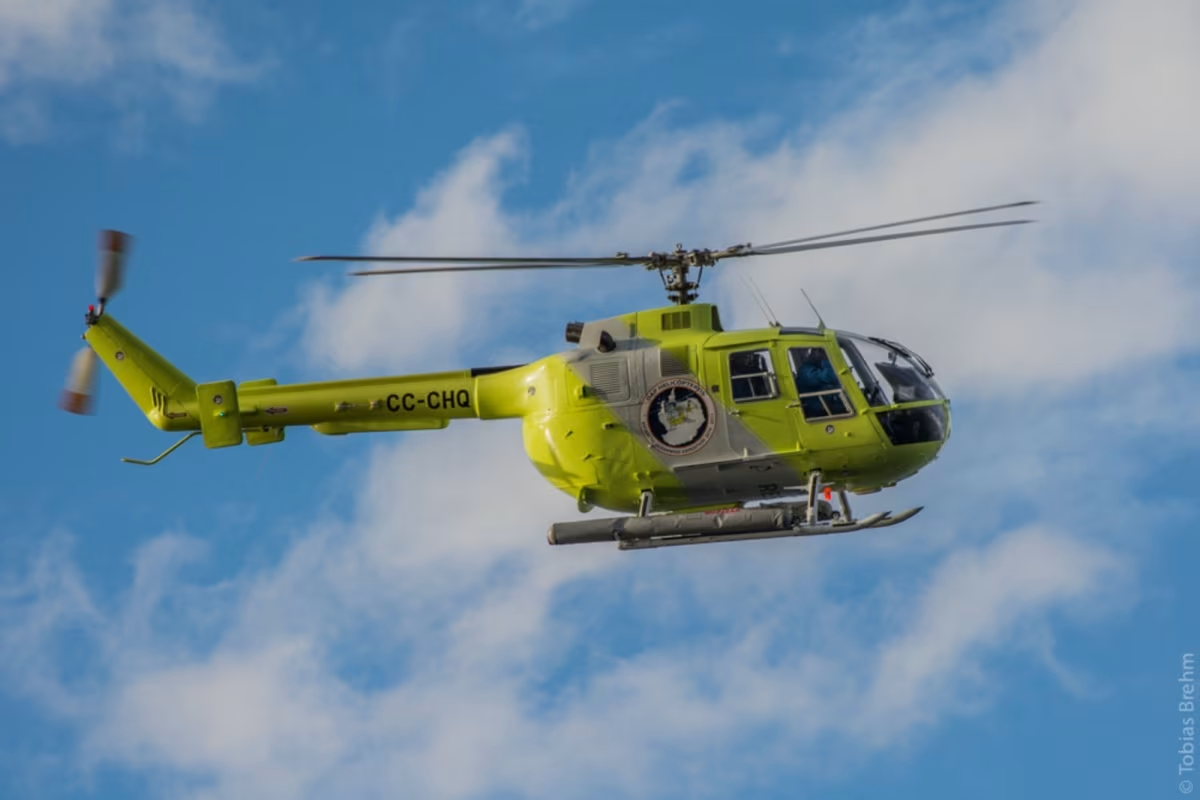
Because it is still quite windy, we have to spend the night at anchor – crossing the Drake Passage is already heavy enough in quiet weather, let alone in stormy weather.
Our Argentinian expedition leader asks us to come to the lecture room to have our first helicopter briefing. ‘We would like to approach the Emperor penguin colony by helicopter as close as possible without disturbing them’, he tells us. ‘From there on, we will try to land on ice and approach them by foot. But it’s unclear yet if we will succeed – that depends on the weathers, the ice conditions and the exact location of the colony. We’ll do our utmost, but every expedition is different.’
Emperors of the ocean
During the next days, the excitement grows. Crossing the Drake Passage means: a lot of encounters with petrels and albatrosses. The latter are the real ‘emperors of the ocean’: albatrosses fly thousands of kilometres every week and hardly ever visit land. During their ‘puberty’ – the first five years of their lives – they explore the open water. After that, they pay a brief visit to land to find a partner and to care for their young.
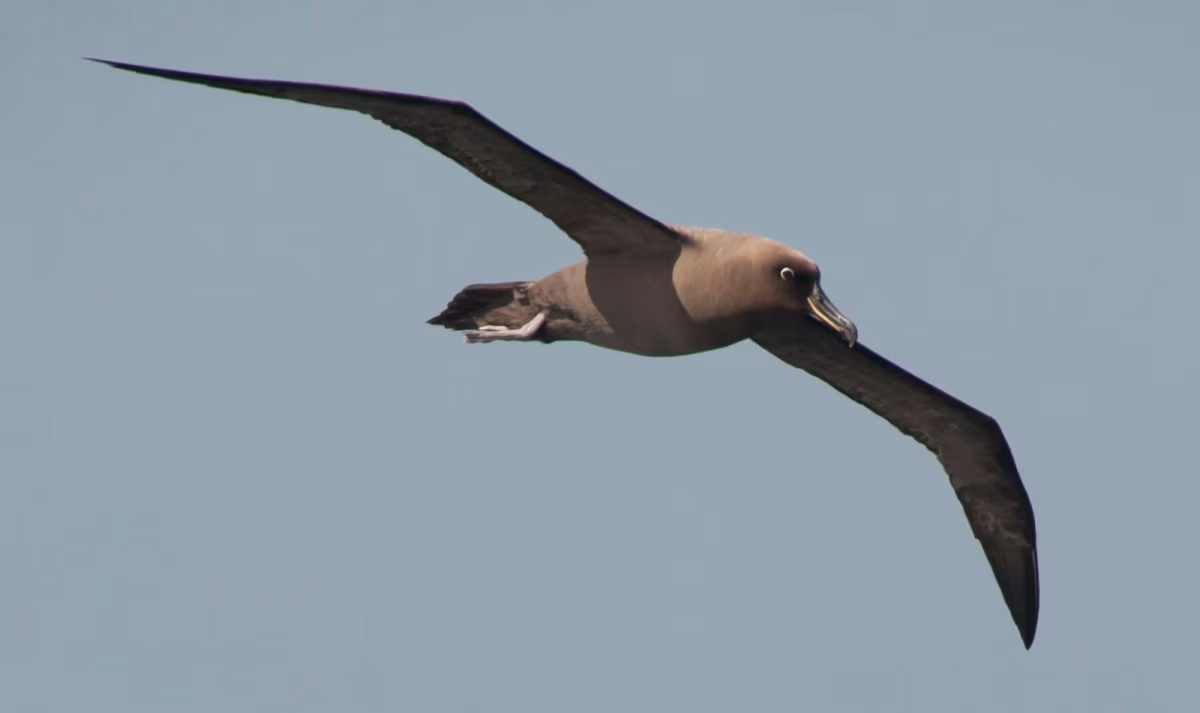
One of the expedition guides, the Dutch biologist Arjen Drost, points out to the drop of water at the tip of a light-mantled albatross. The bird doesn’t have a cold: it’s just the albatross way to get rid of the salt in ocean water. They have a natural ‘filter system’ in their beaks. Watching these birds increases my desire to fly even more. Luckily, we have our first helicopter practise round as soon as we enter calmer waters!
Team Delta
The passengers are split in twelve groups, each with a name according to the phonetic alphabet – Alpha, Bravo, Charlie, Delta, Echo, Foxtrot, Golf, Hotel, India, Juliet, Kilo, Lima… I’m in group Juliet. We draw straws and Echo is the first to go through the practise run. Delta will be the last.
The team members don’t worry too much about that, however – they cheer themselves up by ordering drinks in the bar and playing cards. The group spirit grows. One of the members, Roëll Tessels (26), exclaims: ‘Go Team Delta!’
The practise round means: gathering your life vest (and camera) and going to the helicopter deck, where the crew hands out ear plugs and divides each group into two: one helicopter can carry four passengers, the other five. We have to sit down, try out the seatbelts and practise to walk slowly towards and from the helicopters – running is never allowed.
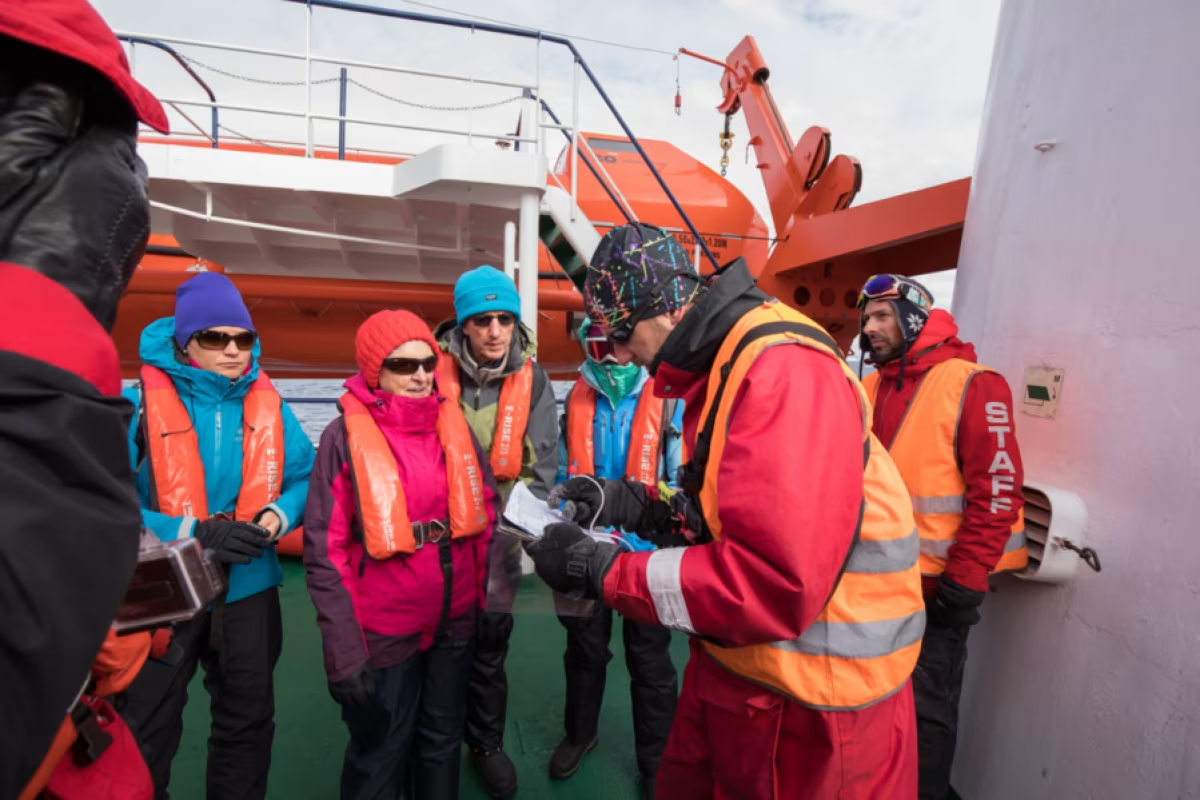
The next day it’s time for our first real flight: hurray! We cannot reach the colony of emperor penguins, because there is too little sea ice. We have a wonderful 15 minute scenic flight, however, and can admire the colony from the sky.
During the flight, I lose track of time: I’m too busy enjoying myself. I forget to make pictures. Luckily, Roëll has installed his Go Pro-camera on the outside of the helicopter, and has created a beautiful time lapse during the flight of Team Delta.
The blizzard
In the afternoon, it’s time to do our first helicopter landing: the pilots plan to land on James Clark Ross Island. Today, Team Delta is the first group allowed to fly. Shortly after they have left, we find ourselves in the middle of a blizzard. Further flights are cancelled, so the rest of us have to remain on the ship. Team Delta has to wait on the island until the blizzard is over. Luckily, they have an emergency shelter with them, with warm blankets. After an hour, they’re able to return to the Ortelius.
The following day, the weather is great: blue skies and no wind. The perfect conditions for another amazing helicopter experience: a scenic flight over the Peninsula. To experience Antarctica in this way, seeing the snow capped mountains and the Argentinian research station far beneath us, is indescribable. To see the white continent from a bird’s perspective: it’s a dream coming true...
